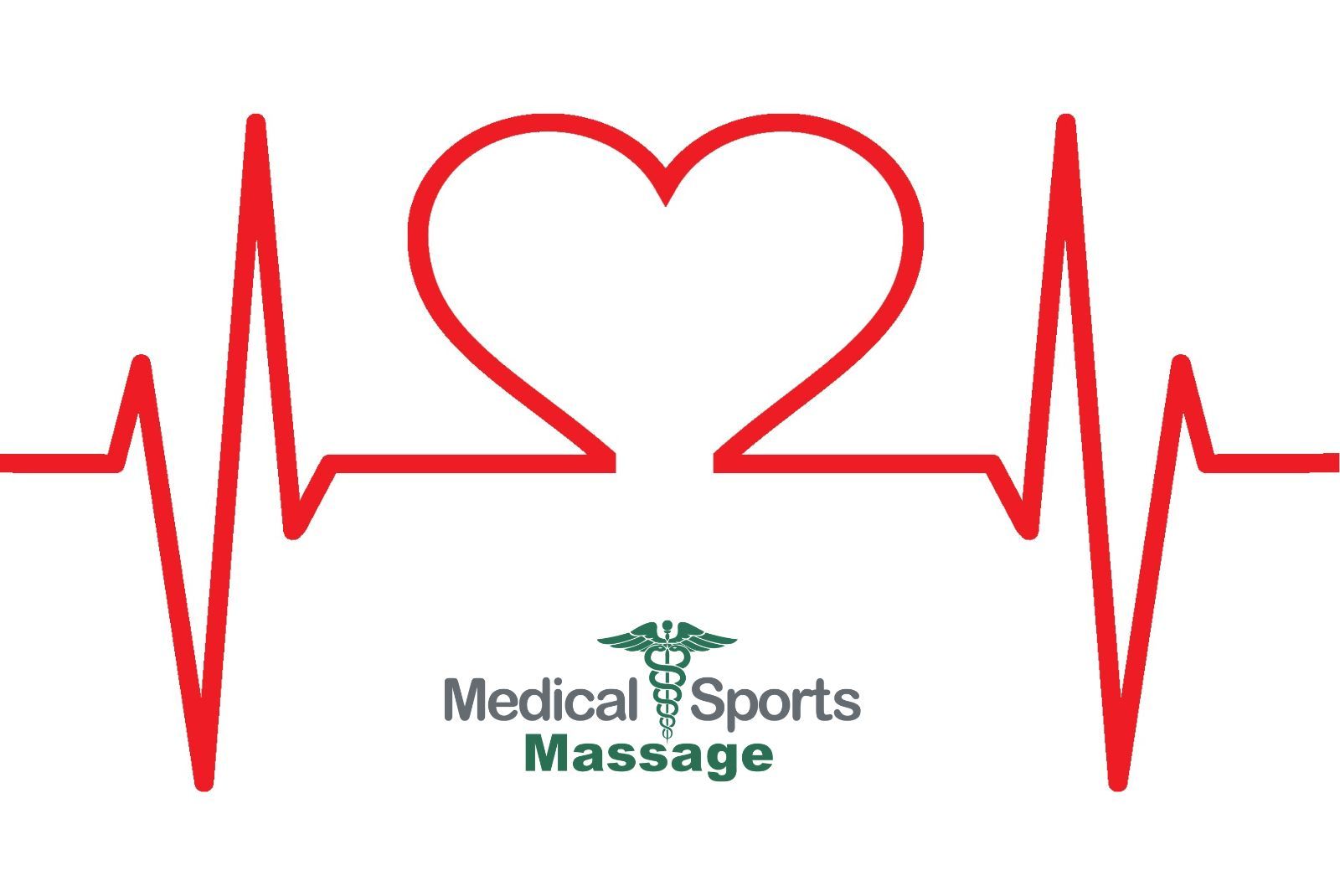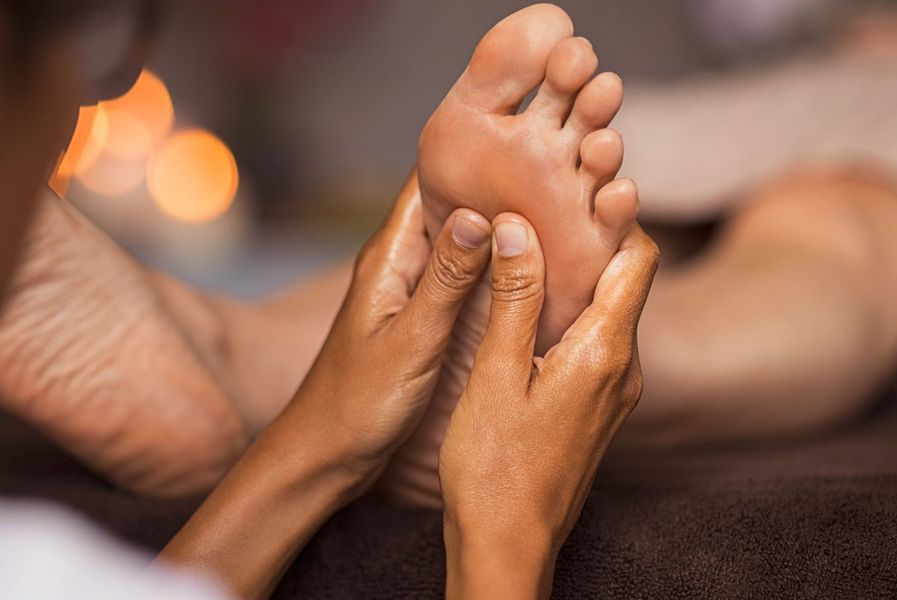When it comes to alternative therapies, massage therapy is often overlooked or dismissed as just a simple indulgence. However, what many people fail to realize is that massage therapy can play a significant role in relieving a wide range of medical ailments. The healing power of touch has been harnessed for centuries and continues to be an effective option for individuals. In this blog, we will discuss seven surprising benefits of massage treatment for medical conditions that you may not have considered.

Transformative Powers of Massage Therapy in Heart Health
Author: Denise Leslie

Benefits of Massage for Heart Health
Massage therapy has been associated with various health benefits, including potential positive effects on reducing high blood pressure and managing stress, both of which are crucial factors in heart health. A PubMed study showed that hypertensive women were able to reduce stress and elevated endothelial inflammatory markers after undergoing Swedish massage. This indicates how a massage session helps manage hypertension, a major risk factor for cardiovascular disease. Here's an overview of the potential impact of massage on heart health:
Chills Out Stress: Massage is like a chill pill for your body. It helps to calm your nerves and lowers stress. When stress goes down, your heart doesn't have to work as hard.
Boosts Blood Flow: Imagine massage as a friendly traffic controller for your blood. It helps the blood move around your body smoothly. Good blood flow means your heart gets the oxygen and nutrients it needs without any traffic jams.
Gentle on the Pressure: If your blood pressure is like a balloon, massage helps to let out a little air. It's been found to bring down high blood pressure, making your heart's job easier.
Relaxed Tense Muscles: Think of your muscles as bodyguards for your heart. When they're tense, they can create problems. Massage loosens them up, taking away the stress and reducing the workload on your heart.
Feels Good, Does Good: When you get a massage, your body releases happy chemicals called endorphins. These not only make you feel good but also have a positive effect on your heart.

Types of Massage Suitable for Heart Conditions
Various massage techniques are used to address different needs and conditions, and they can indirectly promote heart health. A study from the International Journal of Therapeutic Massage & Bodywork demonstrated the benefits of massage therapy for children who had undergone heart surgery, showing reductions in blood pressure and pain. Results have shown enhanced cardiovascular and skeletal muscle function after receiving a massage. Here are different massage techniques and their potential benefits for heart health:
Reflexology: Involves applying pressure to specific points on the feet, hands, or ears to promote overall balance. By targeting specific reflex points associated with the circulatory system, reflexology enhances blood flow throughout the body. Improved circulation supports overall cardiovascular function, ensuring that the heart receives adequate oxygen and nutrients.
Deep Tissue Massage (with caution): Targets deeper layers of muscle tissue with firm pressure to release chronic muscle tension. Deep tissue massage can help reduce stress and anxiety levels. Lowering stress is beneficial for heart health, as chronic stress can contribute to cardiovascular issues.
Sports Massage: The techniques used in sports massage can enhance blood circulation, supporting overall cardiovascular function. It promotes quicker muscle recovery after physical exertion, reducing strain on the heart.
Medical Massage: Medical massage can assist in managing pain, which is especially relevant for individuals with heart conditions experiencing chest pain or discomfort. Techniques employed in medical massage can enhance blood flow, supporting cardiovascular health.

Safety and Efficacy in Cardiac Care
If you have a heart condition and want to get a massage, it's important to be cautious and take safety measures. Before starting the massage session, it's important to talk to your healthcare provider and massage therapist about your condition. Too much pressure during a massage, especially in deep tissue or sports massages, can temporarily increase your blood pressure, which is a safety concern. Therefore, adjustments to the duration, pressure, and type of massage may be necessary to make sure your cardiovascular system isn't stressed too much.
One critical condition to consider is if you've undergone heart surgery. Massage has shown to be promising in cardiac rehabilitation and recovery. A study showed how patients improved their mood when they had a massage after an open-heart surgery, validating the efficacy of massage as a complementary therapeutic intervention to consider for cardiovascular care.
Professional Perspectives and Collaborative Care
Integrating massage into health care is important in ensuring a multidisciplinary approach toward optimal heart health. Combining traditional and non-traditional therapies takes a more well-rounded approach to taking care of one's heart. Massage therapy helps reduce stress, which is closely linked to heart problems. The Journal of the American Society of Hypertension even cited that massage therapy has the potential to reduce blood pressure. By incorporating these types of non-traditional therapies, relaxation and mental well-being can be promoted, which plays a significant role in maintaining optimal heart health. It addresses both physical and psychological factors that contribute to cardiovascular well-being.

Integrating Massage into Heart-Healthy Lifestyles
Massage can be integrated into your self-care routine. Whether it's a weekly pampering session or a monthly treat, viewing massage as an essential aspect of self-care reinforces its importance in maintaining heart health. During particularly stressful times, schedule additional massage sessions to counteract heightened stress levels. This proactive approach helps manage stress before it takes a toll on your cardiovascular system.
In cultivating a heart-healthy lifestyle, incorporating regular massage can be a nurturing and beneficial practice. Massage therapy promotes relaxation, subsequently lowering blood pressure and heart rate. Incorporating regular massage into a heart-healthy lifestyle provides physical benefits and contributes to emotional and mental well-being. Massage helps lower stress levels, as some studies have documented positive effects on diastolic blood pressure.
In Summary
Massage stands as a valuable and holistic component of heart health management, offering an array of benefits that extend beyond mere relaxation. By incorporating regular massage into your heart-healthy lifestyle, you embrace a practice that actively contributes to stress reduction, a key factor in maintaining optimal cardiovascular well-being. The therapeutic techniques of massage not only ease muscle tension but also foster an environment of relaxation, positively impacting blood pressure and heart rate.
Start taking care of your heart health today by consulting with a medical sports massage therapist in Sandy Springs, GA. Call (404) 295-7040 today, and the expert, healing touch of Medical & Sports Massage will help in your cardiovascular care.
Frequently Asked Questions
What is the connection between massage therapy and heart health?
Massage therapy has been shown to have a positive impact on cardiovascular health. It can help reduce high blood pressure and stress levels, which are both beneficial for the heart.
Can massage therapy benefit individuals with heart disease?
Yes, individuals with heart disease can benefit from regular massage sessions. Studies have shown that massage can help improve heart health and even reduce symptoms associated with heart conditions.
Is it safe for individuals with cardiac conditions to undergo massage therapy?
When performed by a skilled massage therapist at Medical & Sports Massage Sandy Spring GA, massage is generally considered safe for individuals with heart conditions. Communicating openly with the therapist about your condition is essential to ensure a safe and effective session.
What are the specific massage techniques that can benefit heart health?
Various types of massage, including deep tissue massage and sports massage, have been shown to offer benefits for heart health. Additionally, gentle techniques that focus on relaxation can help in reducing stress and thereby benefit the heart.
Are there any precautions or considerations for individuals with congestive heart failure or those who have undergone cardiac surgery?
For individuals with congestive heart failure or those who have had cardiac surgery, it is crucial to consult with a medical professional before beginning a massage therapy regimen. With proper guidance, massage can offer specific benefits while ensuring safety.
How can massage therapy help in reducing stress and lowering blood pressure?
Studies have shown that massage can significantly reduce stress levels and promote relaxation, which in turn can lower blood pressure.
Massage therapy can be a valuable tool in managing fibromyalgia symptoms. The gentle touch of a massage therapist can provide relief from muscle pain and tension, helping individuals with this condition experience a reduction in their overall pain. Massage therapy has been shown to increase blood flow and reduce inflammation, which can help alleviate pain and improve joint mobility. Additionally, massage promotes the release of endorphins, the body's natural painkillers, which can boost mood and overall well-being.

About The Author
Denise Leslie is a powerhouse mother, entrepreneur, and advocate for pain-free living. With a passion for healing and promoting health and wellness, As a dedicated therapist, Denise is committed to empowering others on their journey to optimal well-being. She understands the importance of community support and never stops serving those around her.
